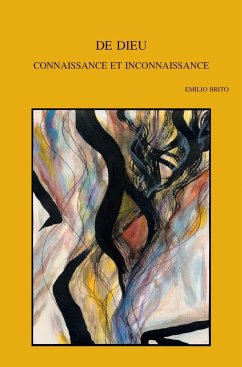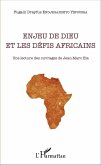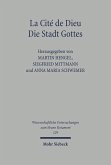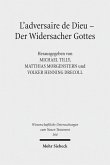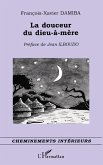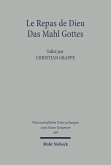English summary: Talking about God is as dangerous as it is necessary. But of God, one can not posit knowledge without having to acknowledge a still greater ignorance. The knowledge of God, at the end, is an eschatological event, which in history can only anticipate itself. The course proposed here includes eighteen chapters, grouped into seven sets. A first set deals with access to God through religion and natural theology. A second set presents the proofs for God's existence, their criticism by Kant, and the Hegelian overtaking of Kantian criticism. In a third set, monotheisms contrast with atheism. A fourth set considers religious language, the doctrine of analogy, and negative theology. A fifth set relates to the Christian experience, mysticism, the unknowing of God according to Master Eckhart, and the question of God in Heidegger. A sixth set deals with the two main themes of fundamental theology, revelation and faith. A seventh and last set questions the essence and attributes of God, the relationship between an impassive God and death, and the vision of the invisible God enjoyed by the blessed after death. French description: Parler de Dieu est aussi perilleux que necessaire. Aujourd'hui, pas plus qu'autrefois, il ne convient pas, en cette matiere cruciale entre toutes, de se contenter d'un simple mutisme. Mais de Dieu, on ne saurait poser une connaissance par l'homme sans qu'il faille alors poser une inconnaissance plus grande encore. La connaissance de Dieu, en derniere instance, est evenement eschatologique, qui dans l'histoire ne peut que s'anticiper. Le parcours ici propose comprend pas moins de dix-huit chapitres. Pour en avoir une synopse plus aisee, il convient de les regrouper, comme l'indique la Conclusion de l'ouvrage, en sept ensembles. Un premier ensemble (chapitres I et II) traite de l'acces a Dieu d'abord par le chemin de la religion (chap. I), puis par celui de la theologie naturelle (chap. II). Un deuxieme ensemble (embrassant les chapitres III a V) presente les preuves de Dieu (chap. III), leur critique par Kant (chap. IV), et le depassement hegelien de la critique kantienne (un depassement pretant lui-meme le flanc a la critique, chap. V). Dans un troisieme ensemble (incluant les chapitres VI et VII), les monotheismes (chap. VI) contrastent avec les atheismes (chap. VII). Un quatrieme ensemble (chapitres VIII et IX) considere le langage religieux (chap. VIII), la doctrine de l'analogie et la theologie negative (chap. IX). Un cinquieme ensemble (chapitres X a XIII) a trait a l'experience chretienne (chap. X), la mystique (chap. XI), l'inconnaissance de Dieu selon Eckhart (chap. XII), et la question de Dieu chez Heidegger (chap. XIII). Un sixieme ensemble (chapitres XIV et XV) aborde les deux themes principaux de la theologie fondamentale (saisie en tant que partie de la theologie) : la revelation (chap. XIV) et la foi (chap. XV). Un septieme et dernier ensemble (chapitres XVI a XVIII) s'interroge sur l'essence et les attributs de Dieu (chap. XVI), le rapport entre le Dieu impassible et la mort (chap. XVII), et la vision du Dieu invisible dont jouissent les bienheureux apres la mort (chap. XVIII). On peut distribuer ces sept ensembles en trois parties principales : on passe de la thematique des diverses religions et de la raison naturelle (premier et deuxieme ensembles) au differend entre monotheisme, notamment chretien, et differentes formes d'atheisme, voire de mysticisme purement naturaliste (troisieme, quatrieme et cinquieme ensembles) ; et on se centre, pour finir, sur la foi catholique dans la revelation du Dieu trinitaire librement engage dans la kenose redemptrice, et sur l'esperance de la vision (sixieme et septieme ensembles).
Dieser Download kann aus rechtlichen Gründen nur mit Rechnungsadresse in A, B, BG, CY, CZ, D, DK, EW, E, FIN, F, GR, HR, H, IRL, I, LT, L, LR, M, NL, PL, P, R, S, SLO, SK ausgeliefert werden.

